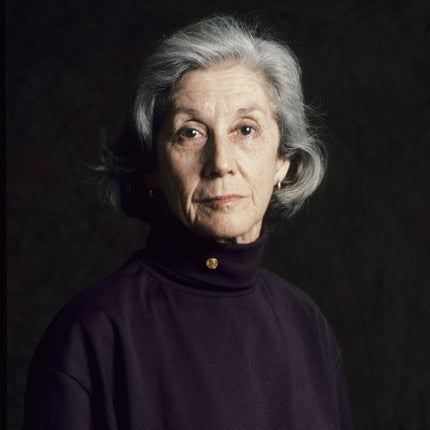Telling Times: Writing and Living 1950-2008, By Nadine Gordimer
A warrior in the fight against racism

Telling Times collects non-fiction from throughout Nadine Gordimer's career. Arranged chronologically, the pieces demonstrate the South African's mastery of a range of forms: trenchant political commentary alternates with thoughtful literary criticism; vibrant travel narratives are juxtaposed with deft autobiographical vignettes.
Gordimer's journalism, in its vivid and resourceful use of language, often recalls her celebrated literary fiction. "A South African Childhood" (1954) evokes the sun-drenched Transvaal landscape in lyrical prose; "Pula!" (1979) recounts a visit to Botswana in a narrative that brims with splendid descriptions: the Kalahari desert is a "vast sand-tray" in which thorn trees are "lead toys stuck upright".
But this anthology is most notable for a series of searching essays on the relationship between art and politics, and the writer's responsibility as a "social being". A vociferous critic of apartheid, the Nobel prizewinner endeavoured in those dark years to find a way to combine political commitment and creative autonomy; to speak out against injustice in her work without recourse to agitprop.
Her solution was to bear witness to history and, concomitantly, to provide an "inward testimony", a record of her own experience as a white South African in a racist society. This makes her writing at once political and personal, and one encounters it in this wonderful book as a courageous, sincere and, above all, human voice.
Join our commenting forum
Join thought-provoking conversations, follow other Independent readers and see their replies
Comments
Bookmark popover
Removed from bookmarks